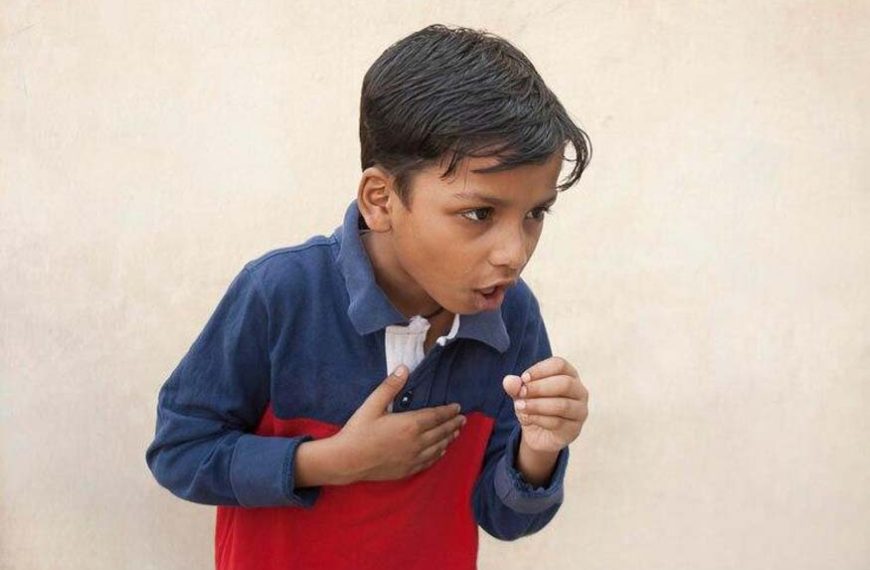These common symptoms of fever and vomiting have a tendency to impact many young toddlers. Toddlers, medically delineated as children between 1 and 3 years old, are in a formative developmental period distinguished by swift physical growth and transformation. During this critical phase, it is quite usual and expected for tiny toddlers to recurrently fall prey to numerous childish illnesses and infections as their fragile immune systems struggle to reinforce defenses.
When the immune system is still gradually building up strength and resistance during the toddler years, fevers and vomiting are ways the body tries to actively fight off bugs and viruses. While these symptoms are understandably alarming for caring parents to witness, they are generally not inherently dangerous if the sick child is carefully monitored, kept properly hydrated, and made comfortable during the illness. However, pediatricians advise that it remains important to vigilantly monitor the toddler’s condition when fever and vomiting are present and watch attentively for any emerging signs of dangerous dehydration or other developing complications.
What Causes Fever and Vomiting:
A fever is medically signaled by a body temperature surpassing 100.4 Fahrenheit or 38 Celsius. This fever represents an immune system response triggered by pyrogens, chemicals that stimulate the body’s defenses against contagion. Usual culpable sicknesses and diseases behind fevers and vomiting affecting toddlers comprise:
- Viral infections like colds, flu, gastroenteritis viruses
- Ear infections
- Strep throat
- Roseola
- Urinary tract infections
- Impetigo
- Reaction to immunizations
- Teething
Sometimes, it can be difficult to determine the exact cause of a fever, especially one accompanied by vomiting. Fever can also present without infection as the body fights off an irritant or processes vaccines.
While less likely, the symptoms of vomiting and fever can sometimes indicate severe bacterial illnesses or dangerous medical conditions such as appendicitis, pneumonia, or meningitis. Additionally, ongoing vomiting and diarrhea can bring about dehydration, which may also elicit a fever response as the body fights to adjust and compensate for the fluid losses.
Managing a Fever:
Fevers are not in themselves dangerous, and in fact, they play an important role in activating immune defenses. Still, high temps above 104 F in toddlers can lead to febrile seizures. So, it is important to monitor the fever and consult a doctor for very high readings. Steps parents can take when fever is present:
- Keep the toddler hydrated and rested
- Dress lightly – no bundling
- Use acetaminophen or ibuprofen to control spiking temps
- Apply cool – not cold! – compresses to the forehead, wrists, and ankles
- Consider OTC sponge baths if the fever climbs over 102 F
A sustained fever exceeding 3 days without manifestation of any other symptoms customarily justifies scheduling a pediatric visit to screen for hidden health problems. Intermittently recurring fevers potentially signify an unresolved infection that may necessitate antibiotic medication if the causative agent proves to be bacterial rather than viral, as can occur with group A strep throat or certain ear infections.
Handling Vomiting:
Repeated vomiting alongside fever is cause for concern as it can bring about dehydration quite quickly in little ones. To manage vomiting:
- Have the toddler take small, frequent sips of clear liquids or ice chips if they cannot handle larger amounts
- Work up slowly from water to Pedialyte pops or freezer pops before reintroducing bland foods like saltines, rice, applesauce, or plain noodles.
- Avoid milk products initially, which can upset the stomach.
- Try ginger ale, mint tea, or chamomile tea to ease nausea.
- Rest the stomach by avoiding solid foods until the vomiting has passed.
- Please keep track of wet diapers as a gauge of whether they are getting enough fluids.
Signs of Dehydration:
In toddlers unable to keep enough fluids down, dangerous dehydration can develop in as little as 4-6 hours. Signs to watch for include:
- Decreasing tears when crying
- Dry lips and tongue
- Lack of urine output or dark yellow urine
- Unusually cranky, drowsy, or lethargic behavior
- Soft spot on head sinking inward
- Lack of elasticity in the skin
If dehydration is hypothesized, immediately pursue medical care by telephoning the pediatrician’s after-hour emergency line or traveling to an urgent care facility. Unaddressed dehydration can induce seizures, plummeting blood pressure, rapid heart rhythms, as well as potential life-threatening organ dysfunction in the toddler. IV fluids will likely be administered.
Also Read – Toddler is not urinating
When to Seek Emergency Care:
While viruses are typically behind most fever and vomiting cases, assessments should be made to spot more serious conditions requiring urgent treatment. Seek emergency medical care if your toddler shows:
- High fever above 104 F, not responding to medication
- The child appears confused, will not wake, or has trouble breathing
- Blue skin coloration
- Severe headache or neck pain/stiffness
- Uncontrolled vomiting lasting over 12-24 hours
- Blood or green/yellow tinge in the vomit
- No urine output for 8 hours
- Signs of dehydration listed above
Seizures, extreme lethargy, vomiting containing blood or bile and no urine output are red flags of potentially dangerous dehydration, chemical imbalances or central nervous system infections requiring hospital care.
Preventing Vomiting and Fevers:
While some viruses and seasonal illnesses are impossible to totally prevent, there are some ways parents can help reduce episodes of fever and vomiting:
- Ensure the child stays up to date with scheduled vaccinations
- Teach proper handwashing technique to the child
- Have the child wash hands after exposure to sick kids
- Practice healthy nutrition and adequate sleep rules
- Keep the toddler home from school/childcare during outbreaks
- Avoid exposure to contagious people when possible
- Sterilize toys, bedding, and pacifiers frequently
Building up the toddler’s defenses also makes them less prone to stomach bugs and recurrent illnesses. Probiotic foods like yogurt, vitamin C intake and zinc supplements can help strengthen immunity against infection causing agents. Rule out food allergies and keep gut flora balanced with probiotic supplements.
When to Call the Pediatrician:
Consult your pediatrician if:
- The fever rises above 104 F
- Vomiting or diarrhea lasts more than a few hours
- Your child shows any signs of dehydration
- They are not able to keep fluids down
- Fevers keep returning after the acute illness is resolved
- They appear more ill than expected with a simple virus
Trust your instincts as a parent – you know when your child’s condition seems potentially dangerous, or they are getting worse instead of improving. Do not hesitate to call the after hours phone line to discuss severe or persisting symptoms.
Managing Fears and Worries:
It is very distressing for parents to have a sick, vomiting, feverish toddler who cannot yet communicate what is wrong. Stay calm for your child’s sake, and monitor them attentively. Have age appropriate books on hand to read together about feeling ill. Comfort them when they need extra snuggles or quiet time. Praise successful attempts to take in fluids. If another adult can assist by taking over care duties for a while, take advantage of this.
Try not to convey any panic in front of a toddler, as they feed off your reactions. Have a plan mapped out ahead of time for managing fevers, arranging back up child care if needed and getting to urgent care during off hours. Keep in mind most bouts of fever and stomach upset pass within 24-48 hours. Your pediatrician can answer questions about warning signs unique to your child’s health history. While scary in the moment, calm, informed management of symptoms and good follow up care leads to positive outcomes in an overwhelming majority of cases.
For more such interesting blogs, Visit EuroKids
















